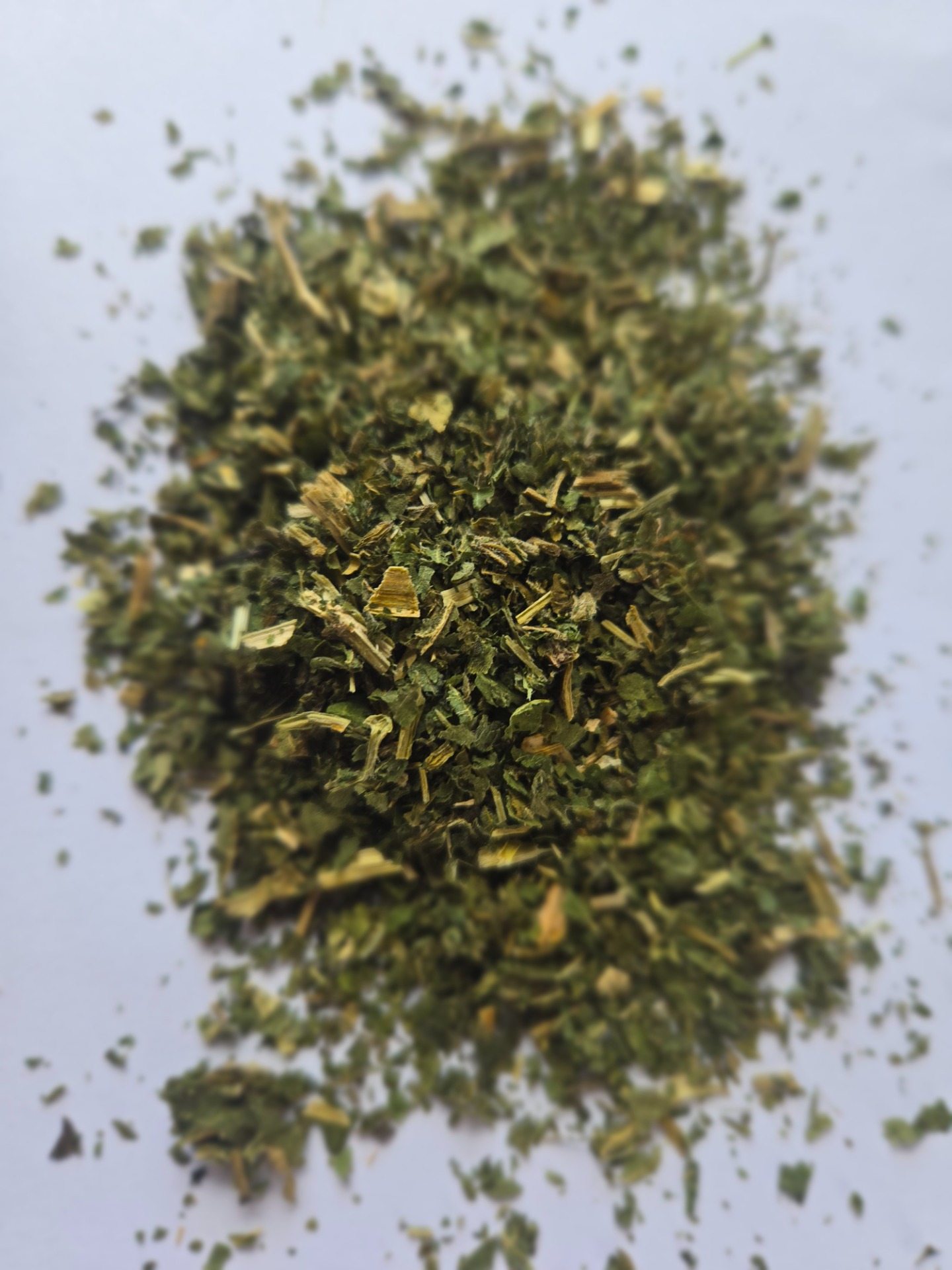Nettle

Nettle (Urtica dioica), commonly known as stinging nettle, is a nutrient-rich herb with numerous health benefits. Key advantages:
1. Rich Nutritional Profile
-
Nettles are high in vitamins A, C, D, E, and K, as well as minerals like calcium, magnesium, potassium, and iron. These nutrients support overall health, including bone strength, immune function, and skin health.
2. Anti-Inflammatory Properties
-
Nettles contain bioactive compounds like flavonoids and polyphenols that help reduce inflammation. This makes them beneficial for conditions like arthritis, eczema, and autoimmune disorders.
3. Antioxidant Effects
-
High levels of antioxidants, such as carotenoids and phenolic acids, protect cells from oxidative stress and reduce the risk of chronic diseases like heart disease and cancer.
4. Blood Sugar Regulation
-
Nettles can help manage blood sugar levels by enhancing insulin secretion and protecting pancreatic cells. They may be useful for individuals with diabetes.
5. Bone Health
-
Rich in calcium, magnesium, vitamin K, and boron, nettles support strong bones and may help prevent osteoporosis.
6. Skin and Hair Benefits
-
Nettles' anti-inflammatory and antibacterial properties promote skin healing from conditions like acne and eczema. They also support healthy hair growth due to their silica content.
7. Immune Support
-
The high vitamin C content boosts immunity by reducing free radicals and supporting the production of white blood cells.
8. Heart Health
-
Nettle tea may lower blood pressure and cholesterol levels while improving circulation, reducing the risk of cardiovascular diseases.
9. Kidney and Gallbladder Health
-
As a natural diuretic, nettles help flush out toxins and reduce the risk of kidney stones or bladder infections.
10. Anticancer Potential
-
Some studies suggest that nettles may slow the progression of certain cancers due to their antioxidant properties; however, more research is needed.
11. Additional Benefits
-
Nettles may help alleviate allergies (e.g., hay fever), improve iron-deficiency anemia due to their high iron content, support eye health through beta-carotene, and enhance energy levels.
Precautions:
While nettles are generally safe when consumed as tea or supplements, they can interact with medications (e.g., blood thinners or diuretics) or cause allergic reactions in sensitive individuals. Always consult a healthcare provider before use.
Incorporating nettles into your diet through teas or cooking can provide these benefits while adding a nutritious boost to meals.
Citations:
- https://www.bbcgoodfood.com/health/nutrition/health-benefits-of-nettle-tea
- https://pmc.ncbi.nlm.nih.gov/articles/PMC4708629/
- https://www.britannica.com/video/nettles/-194181
- https://www.webmd.com/diet/health-benefits-nettle-leaf
- https://consensus.app/home/blog/nettle-leaf-health-benefits-nutrition-facts-and-how-to-prepare-it/
- https://www.webmd.com/vitamins/ai/ingredientmono-664/stinging-nettle
- https://www.medicinenet.com/16_benefits_of_stinging_nettle_7_side_effects/article.htm
- https://www.nature.com/articles/s41598-020-67055-w